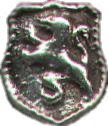Often, and unfairly, described1 as a weak sequel to 2001, this was showing last night on the Sci-Fi Channel. This is still one of my favourite movies.
Whereas 2001 was bleak and drab in various shades of grey (a deliberate move to make the final psychedelic "stargate" effect far more impacting), this film brought colour to the "new" space race.
The US-Soviet tensions do seem a little dated now, but at the same time, lay some strong foundations for the plot.
Plot: Discovery, left in parking orbit around Io by
To explain, I read this story first, before I saw it. As such, the film is fairly faithful, only the absence of the Chinese mission being obvious. 2010 was first written by
This film can still send shivers up my spine, particularly the scene where Dave Bowman turns up and when the Monolith disappears. The special effects have stood the test of time fairly well. They still look pretty damn good, and can put a lot of CGI from more modern films to shame. Even the ignition of
This is definitely a film that stands up to repeat viewing. You catch new and different things each time you watch it. It also pays to have a good
Score: A- for sci-fi fans. Probably a B- or C+ for non-fans.
OQ: I understand. It is important that you believe me. Look behind you.
1It's also correctly described as one of the few films where

No comments:
Post a Comment